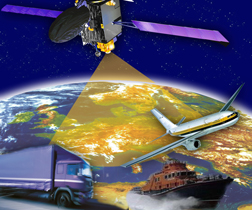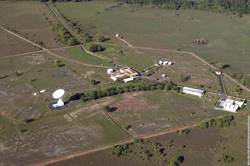The consortium negotiating to build and operate Europe’s Galileo system now expects to sign an agreement with the Galileo Joint Undertaking (GJU) by the end of 2006.
The consortium negotiating to build and operate Europe’s Galileo system now expects to sign an agreement with the Galileo Joint Undertaking (GJU) by the end of 2006.
Stefan Sasser, managing director of TeleOp GmbH, a member of the merged eight-member consortium, made that prediction to participants in the Allsat Open conference held June 22 in Hannover, Germany. The event was hosted by Allsat GmbH, a provider of GNSS products and engineering services.
The agreement will not be a full-fledged contract, however, but an outline of the “head of terms” — or the headlines of the contract — identifying the key issues and responsibilities for the Galileo program, now scheduled to complete a 30-satellite GNSS constellation by 2010.
At that point, the GJU is scheduled to go out of business, leaving responsibility for signing and overseeing a contract with the concessionaire to the Galileo Supervisory Authority (GSA). The GSA is a European Union (EU) agency set up a couple of years ago and headed by Pedro Pedreira that will actually own Galileo.
On the industry side, the consortium members are currently setting up a Galileo Operating Company (GOC), which will be headquartered in Toulouse, France, and be responsible for the contract with the GSA. The GOC will award three key subcontracts: to Arianespace for launch services, Galileo Industries (a consortium of European aerospace companies) for deployment of the Galileo space and ground infrastructure, and a 20-year services contract with an operations company to be based in London, England.
The concession partners and the European Space Agency (ESA) are negotiating an agreement for ESA to hand over responsibility to the GOC in 2009 for overseeing completion of the Galileo infrastructure. ESA will retain responsibility for providing “technology refresh and replenishment” for the system infrastructure.
According to industry officials, the concessionaire will need to go back to more than 100 prospective subcontractors and negotiate deliverables and costs, before approaching European banks for financial backing. An actual contract is now expected to be signed by the end of 2007. That contract timeline is not expected to affect the Galileo implementation schedule.
China’s Galileo Role. Meanwhile, the participation of non-European nations in the Galileo program remains a matter of discussion. EU transport ministers are deliberating China’s participation in the GSA, with some reportedly resisting the nation’s membership despite the fact that China is a partner in the GJU.
When it joined the GJU, China pledged $200 million to the Galileo effort. Most of that money has been spent in China, however, on infrastructure and application development projects; one European industrial source suggested that the amount that has gone into the Galileo program budget is no more than $10 million.
Complicating the picture are reports that China plans to pursue its own military GNSS system called COMPASS and may seek to put signals on the same portion of the L1 frequency as the new military GPS M-code.
Copyright 2006 Gibbons Media and Research LLC





